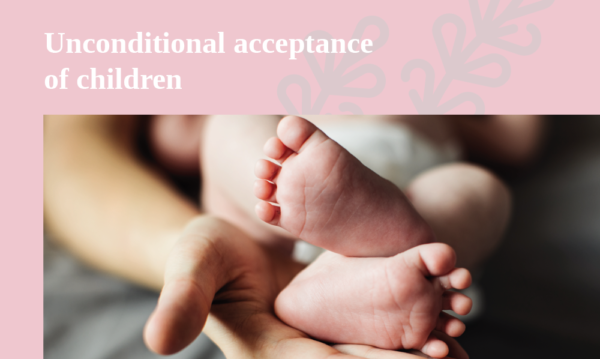Parents’ acceptance towards their children and their attitudes is not common in all cases, while it usually differs from one parent to another. For this reason, parents do not have to present a “single front” in all situations. If they were trying to be consistent, they would not be authentic. And when parents manage to show “unity” when they must decide on how to raise their children, usually one tends to back down and follow the other parent, thus suppressing himself and his real desires and behaviors.
So, it is almost impossible for a parent to accept all the child’s behaviors without exception. Some of his habits and behaviors are in the “area of non-acceptance” of a parent. Some parents might pretend to accept most of their children’s behaviors, thus showing false acceptance.
Children can understand their parents’ true feelings through the non-verbal cues they send them. Through a frown, a specific tone of voice, a gesture, and some tension in the face’s muscles, the parent gives some faint signs that show his annoyance and irritability, even if the words he uses show the opposite. The child receives contradictory messages, a behavior that tells him that there is no problem, not sleeping yet, and non-verbal signs that say that his mother does not want him to stay awake. Such messages create feelings of frustration and anxiety in the child, as he does not know which behavior to choose.
Consequently, when the child always experiences contradictory acceptance, he feels that he is not loved and resorts to testing his parents’ limits many times. He experiences anxiety and feelings of insecurity that he cannot calm down. False acceptance also erodes the parent-child relationship as the child doubts his parents’ honesty and genuine behavior. He learns that often the father says something while feeling something different. He, therefore, ends up being distrustful of his parents.
In a relationship as intimate and long-lasting as the parent-child relationship, the parent’s real feelings can rarely be hidden from the child. That is why parents need to explore what they do not accept in their child, what brings them into conflict, what emotions arise. After that, they can discuss it with the child to discover new ways to manage such situations jointly. The child does not need perfect and idealized parents; he needs real parents to be able to “flourish” and develop.
Gordon, T. (2009). Parent Effectiveness Training


